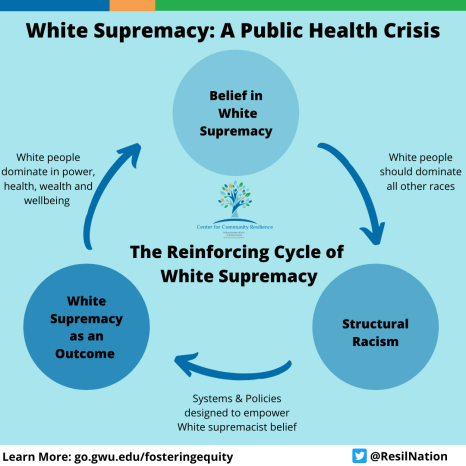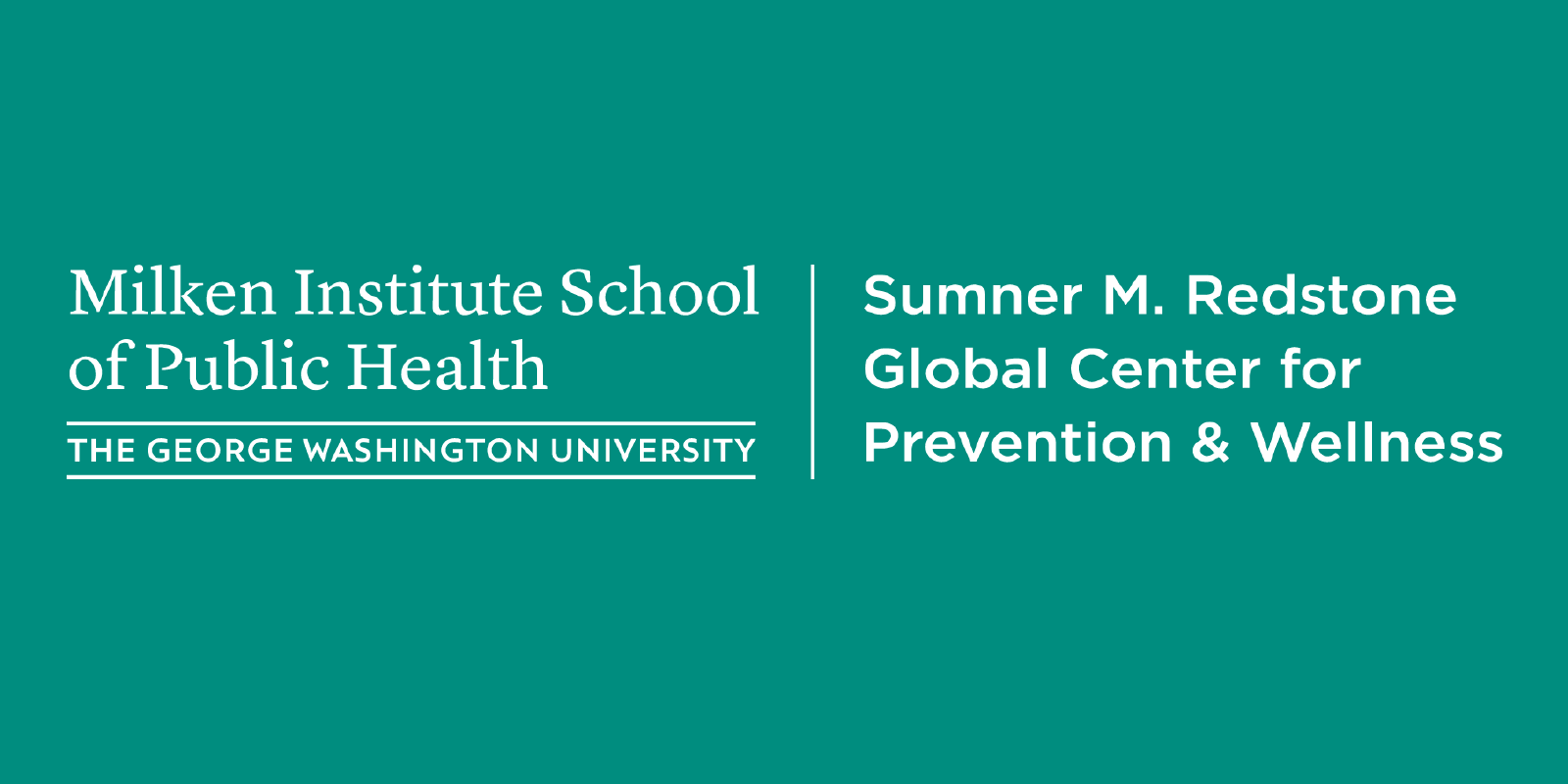[Originally published on Medium on June 15th, 2020.]
By Wendy Ellis, director of the Center for Community Resilience, and William (Bill) Dietz, director of the Redstone Global Center
Wendy Ellis: As a nation, we agonize over how to approach conversations on race, racism, white supremacy and structural racism. Meanwhile, black, brown and indigenous people suffer. The events of the past 90 days have stripped away any possible denial of the existence of a pandemic within a pandemic. COVID-19 has laid bare long-standing inequities that have resulted from white supremacy empowered by structural racism.
The policies and practices of our nation’s systems reflect the impact of structural racism within all aspects of our institutions and societal foundations, empowered by the belief in white supremacy. The systematic and systemic apparatus of white supremacy guarantees and maintains a racial hierarchy that most benefits white people socially and economically, thereby reinforcing the belief in white supremacy. White supremacy persists as a vicious feedback loop intended to systematically hold back African-Americans and people of color. White supremacy, just like COVID-19, is the source of a public health crisis. Undoing an entire system of white supremacy built upon over 500 years of policy and practice will require long-term commitment.
The recent actions of Amy Cooper and Minneapolis Police Officer Derek Chauvin reveal how structural racism empowers and upholds white supremacy. The threat of the African-American male, particularly towards white women, has been used to justify the actual lynching of thousands of American black men, boys, and in a few cases women, to ‘teach a lesson’ and protect a white order. Today’s “lynchings” — like that of George Floyd — are posted on social media for all to see and are often carried out by police officers exerting power in the guise of upholding their oath to protect.
Bill Dietz: The uprisings of the past two weeks reflect the same anger, anguish, and frustration that accompanied the spontaneous uprisings in American cities over 50 years ago. Most of the core elements have not changed — a denigration of the lives of people of color, with increased rates of unemployment and poverty, substandard housing, poor schools, a biased criminal justice system — all products of the systemic racism that has characterized our country since the arrival of the first white men. The important word here is white — the conditions and poor health of people of color are not a consequence of their inadequacies, but are a product of exclusion and dehumanization exercised by white supremacy and racism. Although the most recent uprisings were sparked by the brutal murder of George Floyd, the outrage is compounded by the underlying stressors of the COVID-19 pandemic. These additional stressors include the disproportionate rates of hospitalizations and deaths associated with COVID-19 in people of color, the loss of respected community leaders, increased rates of unemployment from the shutdown, the fragility of already compromised food systems in underserved communities, and increased rates of food insecurity.
Wendy Ellis: Exposure to images of police brutality and harassment alongside Cookie Monster, Big Bird and Elmo are rites of passage for children of color in America. The trauma of racism for children of color is oftentimes steeped in under-resourced communities with limited access to quality education and economic mobility. The effects of racism in these communities is captured by the Pair of ACEs — adverse childhood experiences in the context of adverse community environments. Inter-generational trauma due to racism is absorbed and exacerbated by a society that refuses to acknowledge the root cause — the belief in white supremacy empowered by structural racism.
White supremacy holds power because of systems and policies that enforce a racial hierarchy. In public health, we are all too familiar with the outcomes that result from unrelenting stressors — recent data from the Centers for Disease Control and Prevention indicate that African-Americans are living with or dying from many chronic conditions (such as heart disease, diabetes and stroke) at younger ages than their white counterparts. In fact, African-Americans aged 18–49 are two times as likely to die from heart disease than whites. Trauma due to racism is an adverse childhood and adverse community experience with major public health consequences.

Bill Dietz: Police are the most visible enforcers of white racism. For example, a recent New York Times report indicates the use of force such as gunpoint display, chemical irritants, and neck restraints are used over three times more often against black people in Minneapolis than in whites. Implementation of the recommendations of the Task Force on 21stCentury Policing by mayors and county commissioners will reform police practices, but will not address the broader practices and consequences of white racism. Black, brown, and indigenous people cannot be expected to end white racism. That is the obligation of white people. We must start with anti-racist actions within ourselves, in our own institutions, in our relationships with our partners, and with redoubled efforts in our communities. Following the 1967 uprisings, the 1968 Kerner Commission’s Report of the National Advisory Commission on Civil Disorders stated “What white Americans have never fully understood but what the Negro can never forget — is that white society is deeply implicated in the ghetto. White institutions created it, white institutions maintain it, and white society condones it.” The report provided guidance and direction to end white racism and its effects, but did not generate the will and courage required to implement its recommendations. Generating that political will now depends on us.
Wendy Ellis, DrPH, MPH, is the Director of the Building Community Resilience Collaborative and Networks at the George Washington University Milken Institute School of Public Health.
William (Bill) Dietz, MD, PhD, is director of the Sumner M. Redstone Global Center for Prevention and Wellness at the George Washington University Milken Institute School of Public Health.


